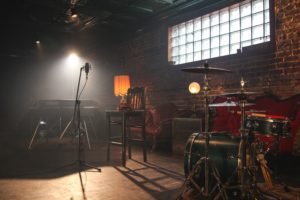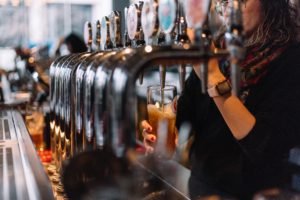Published: by Suraj Desor, Associate Solicitor
Last modified:
These are the key and most common mistakes you must avoid
“If you’re looking to obtain a premises licence there are some key, and dare I say, common mistakes you need to avoid” warns Suraj Desor, Solicitor at the UK’s leading licensing lawyers, Poppleston Allen.
Most people obtain a premises licence (sometimes called liquor licence, alcohol licence, or even a pub licence) for the sales of alcohol either on or off a premises, or sometimes both. But these legal documents allow much more than that, including entertainment, such as recorded or live music (including karaoke), films, performance of dance, indoor sporting events, permission to sell hot food and drink between 11pm and 5am, and even wrestling and boxing.
The premises licence is not just vital for alcohol sales and different styles of leisure operations, but for food takeaways and contrary to popular belief, it is the actual premises which is granted the licence and not you personally. To this end, securing a premises licence can significantly increase the value of a property and to the contrary, should a licence be revoked or lapse, it can significantly reduce its value.
Below are some common, but by no means exhaustive, list of mistakes made when applying for a premises licence:
- Confusing the premises licence holder with the Designated Premises Supervisor with the personal licence holder. That’s a lot of names. The premises licence holder is the person or company who holds the licence. The Designated Premises Supervisor (DPS) is required to be named for any premises licence which wishes to be authorised to sell alcohol. They are effectively the person with day-to-day responsibility for running the premises. The DPS must have a personal licence. A personal licence is specific to an individual who has passed a course and made the appropriate application for the personal licence. There can be several personal licence holders working at the premises, but only one DPS.
- Paying the incorrect fee. The fee for a premises licence application is based upon the non-domestic rateable value of the premises and generally ranges between £100 to £635 (although it can be much higher for very large events like festivals and stadia). There are also increased fees for large venues like nightclubs and bars that are exclusively or primarily used for the supply of alcohol for consumption on the premises. If you don’t get the fee right then your application might be rejected or put on hold, pending correct payment of the fee. Any delay of course may affect your opening day.
- Hours and activities. Decide what hours you want for different types of licensable activities, for example sale of alcohol, regulated entertainment or late night refreshment.
These categories may seem simple at first but here are a few points that can trip up the uninitiated:
Sale of alcohol. You need to say whether this if for consumption on the premises, off the premises or both. If you have a beer garden which does not form part of your licensed premises, then you will certainly want to tick “both” so that your customers can purchase alcohol inside the premises and take it out to the beer garden. The same applies to premises that provide deliveries.
Regulated entertainment is divided up into several sub-categories. You don’t need to apply for authorisation for Films for example, if you are only showing live broadcasts, as these are exempt. Conversely, if you are showing pre-recorded clips of the 1966 World Cup Final from your own DVD collection prior to showing a live match, you will likely need authorisation for showing that pre-recorded DVD. As the showing of Films is not regarded as a particularly controversial licensable activity it is usually best to apply for the authorisation if in any doubt.
Although the Live Music Act and subsequent de-regulation made live amplified music (bands) and recorded music (DJ’s and in-house systems) generally exempt from licensing on licensed premises between 8.00am until 11.00pm, did you know that the bar must be open for the sale of alcohol for consumption on the premises to be able to benefit from that exemption? If, for religious, youth events or other reasons the bar is shut for a particular event, then you may well need live and recorded music actually authorised on your licence, rather than relying on any exemption.

A lot of what was previously regulated entertainment, for example Plays, live and recorded music, staff dancing (of a non-adult nature) and indoor sporting events is now exempt between 08.00 and 11.00pm for audiences up to 500 (1,000 in the case of indoor sporting events).
The licensable activity of late night refreshment takes place where the hot food or hot-alcoholic drink is physically provided to the customer. This usually differs from where the licensable activity of the sale of alcohol takes place (which is where the alcohol if specifically selected for the customer, which might be behind the bar or indeed from a warehouse if it is an online order). So, if you have waiters and waitresses bringing hot food to external areas you need to ensure that those external areas, if the food is being provided after 11.00pm, are within the licensed area for late night refreshment.
The Operating Schedule – this is part of your application. You will need to explain how you plan to manage the premises, your employees and customers to ensure you promote the licensing objectives. Remember that anything you put in your Operating Schedule can legitimately be converted into conditions by the Licensing Authority once the licence is granted. Be very careful what information you put in the Operating Schedule beyond that which is necessary therefore, and if in doubt make sure that you caveat any additional voluntary measures as for information only and not to be included as conditions, to avoid any confusion. Any measures you will operate to ensure you will promote the four licensing objectives, that you are happy to be converted to conditions on the licence, should be stated in this section. For example conditions around CCTV operation at the premises or use of Challenge 21/25 as part of your age verification process as to sales of alcohol.
- The plan of your premises. This must accompany the application and should provide details of the boundaries, points of access, toilets, stairs and steps, escape routes and locations where you will be carrying out licensable activities. Permanent or semi-permanent items that could affect people’s ability to use exit routes must also be shown, for example fixed seating, the bar or pool tables.
- It’s an obvious point, but if your premises is on three floors, remember to include all three floors on the licence application plans! Another point to remember is if you come to vary your layout plans in future, perhaps on the ground floor, make sure you make it clear that the other floors remain unchanged, otherwise the Licensing Authority might replace your three-floored premises with a one floored premises if you have only supplied a plan for the ground floor showing the revised layout.
- If you are an individual applying for a premises licence, and in any event in respect of the Designated Premises Supervisor, you will need to show proof of entitlement to work in the UK.
- Where you propose to sell alcohol as part of your premises licence permission you need to nominate someone to be your DPS (with the possible exception of ‘community premises’). Don’t forget to include the consent of the DPS, who must of course hold a personal licence.
In order to apply for a personal licence the individual must:
-
- Be over 18 years of age
- Not have forfeited a personal licence during the past five years
- Be entitled to work in the United Kingdom (provide right to work/immigration status)
- Hold an accredited licensing qualification, such as the Award for Personal Licence Holders (APLH)
- Supply two passport style photographs, signed by a solicitor, professional person or a person of standing in the community.
- Provide a criminal record check and disclosure of convictions – you can apply for a Basic Disclosure and Barring Service (DBS) (Note: if the person has any unspent “relevant” offence or foreign offences, the police are notified and they may object to the application, and if that objection is not withdrawn, the licensing authority will hold a hearing where a decision to grant or refuse is made)
- Pay the appropriate fee and complete an application form

Once you have all of the above, you can complete your premises licence application which you can usually submit online via the Government website.
Once you obtain a premises licence, it is valid indefinitely (unless you sought to time limit the licence). However, it can be lost (revoked) at the premises licence review hearing. And it can also lapse if the holder dies, becomes incapacitated or insolvent and no premises licence transfer application has been made in time.
I appreciate the above is a lot to take-in for those of you considering a premises licence application. And if securing a satisfactory premises licence is vital for your business and you are concerned that you might not get the results you need, consult a specialist licensing solicitor who can help you prepare an application that is most likely to get you the premises licence that you want.
Something else you might like…
- News
- Premises licence
- Premises licence
How long does it take to get a premises licence?
Read about the time it takes before you can open your doors (or launch your website) for alcohol sales
- Cumulative impact policy
- News
- Premises licence
Another Midlands Council considers removal of its Cumulative Impact area
Midlands Council is proposing the removal of the Cumulative Impact areas as part of its Licensing Policy Consultation.
- News
- Premises licence
- Premises licence
- Publications
How to write a premises licence application so you can sell alcohol and provide entertainment
A simple guide on how to apply for a premises licence to sell alcohol and provide regulated entertainment